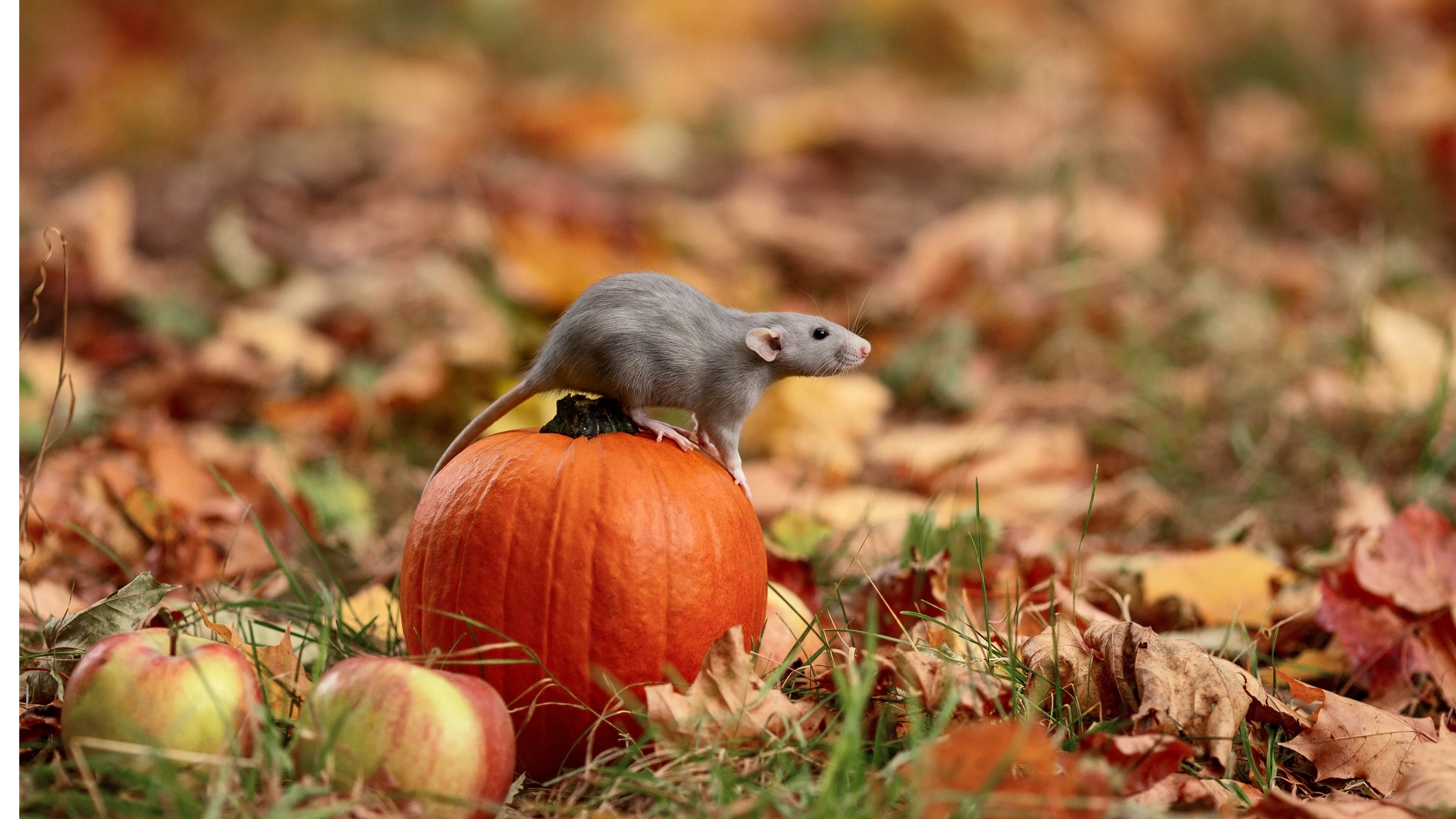Are You Ready for a Winter Rat Surge? Here Are 5 Simple Steps to Prepare!

Published: 2025-09-16 06:15:00 | Category: Trump GNEWS Search
As summer transitions to autumn and winter, experts warn that rodent populations may surge due to favourable breeding conditions created by warm weather and food waste. To safeguard your home and prevent costly damage, early intervention is crucial. Here are five essential steps to prepare your property for the impending rodent influx.
Last updated: 08 October 2023 (BST)
- Seal entry points to block rodent access.
- Reduce outdoor attractions by managing waste and debris.
- Utilise natural deterrents to keep rodents at bay.
- Maintain high cleanliness standards in your home.
- Check and fix water sources to prevent attracting rats.
The Rising Threat of Rodents in the UK
With the UK experiencing record-hot summers, the combination of warmth and leftover food waste creates ideal breeding conditions for rodents. As temperatures drop, these pests seek shelter, often invading homes in search of food and warmth. Greg Wilson, home insurance expert and CEO at Quotezone, emphasises that "early intervention can prevent costly repairs and ensure the home remains safe and insurable."
Rodents pose significant health risks and can cause considerable damage to property. Left unchecked, they can lead to structural issues, contaminate food supplies, and transmit diseases. Therefore, it is imperative for homeowners to take preventive measures now, especially as the darker evenings approach.
Five Essential Steps to Rodent-Proof Your Home
1. Seal Entry Points
Rats can enter your home through remarkably small openings. Therefore, inspecting your property for potential entry points is vital. Wilson recommends using steel wool, wire mesh, or caulk to seal cracks and gaps in walls, foundations, and around doors and windows.
Common entry points include:
- Gaps around entry steps
- Airbricks
- Pipe entry points
By meticulously sealing these areas, you can significantly reduce the risk of rodent infestation.
2. Reduce Outdoor Attractions
Even if rodents do not enter your home, they can still be a nuisance in your garden. They pose threats to pets and may carry diseases that can affect humans. Wilson advises homeowners to manage their outdoor environments to deter rats.
Key steps include:
- Avoid leaving rotting food in compost.
- Clear garden debris where rats might nest.
- Trim back trees and shrubs to prevent branches from touching your home.
By minimising outdoor attractions, you can make your garden less appealing to rodents.
3. Use Deterrents
Natural deterrents can effectively repel rodents before resorting to traps. Certain essential oils and natural remedies can create unpleasant environments for these pests. Wilson suggests using:
- Peppermint oil
- Ammonia
- Ultrasonic devices
These methods can help keep your yard rodent-free without the need for harsh chemicals.
4. Don't Let Your Cleanliness Slip
Maintaining cleanliness in your home is crucial in deterring rodents. Higher populations will require increased vigilance in keeping your living spaces tidy. Wilson advises that:
- Kitchens, pantries, and food storage areas should be immaculate.
- Food should always be stored in airtight containers.
- Crumbs and spills must be promptly cleaned.
These practices will help avoid attracting unwanted pests.
5. Check Water Sources
Rats need water to survive, and any leaks or standing water can create a breeding ground for them. It's essential to ensure your drains and gutters are clean and functioning properly. Wilson recommends:
- Fixing any leaking taps or pipes.
- Addressing areas of stagnant water in your yard.
Not only will this help deter rodents, but it can also prevent other pests, such as mosquitoes, from becoming an issue.
Understanding the Risks of Rodent Infestations
Rodents are not merely a nuisance; they can pose serious health risks. They carry various diseases, which can be transmitted through their droppings, urine, and bites. Common illnesses associated with rodent infestations include:
- Hantavirus
- Leptospirosis
- Salmonella
Understanding these risks highlights the importance of preventive measures. Homeowners should remain vigilant and proactive in safeguarding their properties to protect themselves and their families.
What Happens Next?
As we move deeper into autumn and winter, rodent populations are likely to rise. Homeowners should not only implement the preventive measures outlined but also conduct regular inspections of their properties. If you notice signs of rodent activity, such as droppings or gnawed materials, it may be time to consult with pest control professionals.
Taking action early can save you from expensive repairs and ensure your home remains a safe haven throughout the colder months.
As the seasons change, are you prepared to protect your home from the rising threat of rodents? Don’t wait until it’s too late—take these steps now to keep your property safe. #RodentControl #HomeSafety #PestPrevention
FAQs
What are common entry points for rodents?
Common entry points include gaps around doors and windows, holes in walls, and spaces around pipes. Sealing these areas can prevent rodents from entering your home.
How can I naturally deter rodents?
Natural deterrents include using peppermint oil, ammonia, and ultrasonic devices. These methods can help keep rodents away without harmful chemicals.
What health risks do rodents pose?
Rodents can carry diseases such as Hantavirus, leptospirosis, and salmonella, which can be transmitted through droppings, urine, or bites.
How can I reduce outdoor attractions for rodents?
To reduce outdoor attractions, avoid leaving rotting food in compost, clear garden debris, and trim trees and shrubs that touch your home.
Why is cleanliness important in rodent prevention?
Maintaining cleanliness prevents food sources from attracting rodents. Keeping kitchens and food storage areas clean is essential to deter infestations.



